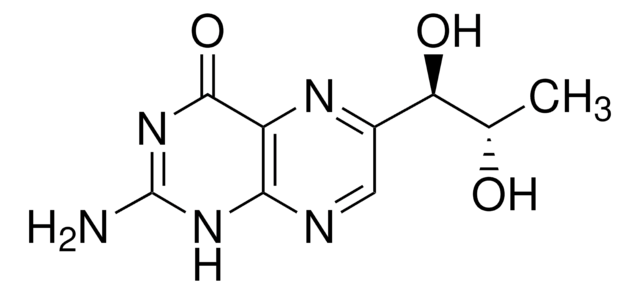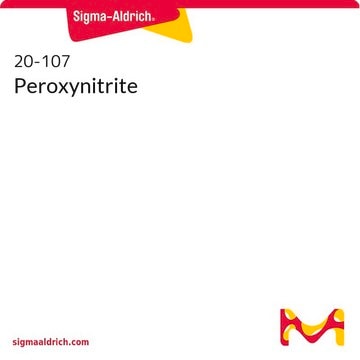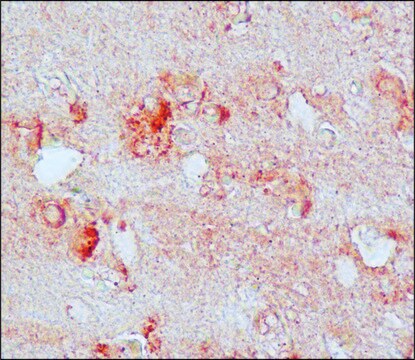Select a Size
Select a Size
About This Item
Recommended Products
form
liquid
Quality Level
manufacturer/tradename
Upstate®
technique(s)
western blot: suitable
shipped in
dry ice
1 of 4
This Item | 516620 | SCT035 | N0409 |
|---|---|---|---|
| form liquid | form liquid | form - | form buffered aqueous solution |
| manufacturer/tradename Upstate® | manufacturer/tradename Calbiochem® | manufacturer/tradename - | manufacturer/tradename - |
| technique(s) western blot: suitable | technique(s) - | technique(s) cell based assay: suitable | technique(s) immunohistochemistry (frozen sections): 1:1000 using methacarn-fixed, frozen sections of human Alzheimer′s Disease brain, indirect ELISA: 1:1,000 using nitrated-BSA, indirect immunofluorescence: 1:1,000 using A549 cells metabolically labeled with 3-nitrotyrosine, microarray: suitable, western blot: 1:1,000 using nitrated-BSA |
| shipped in dry ice | shipped in wet ice | shipped in ambient | shipped in dry ice |
General description
Application
Biochem/physiol Actions
Quality
Physical form
Legal Information
Signal Word
Warning
Hazard Statements
Precautionary Statements
Hazard Classifications
Eye Irrit. 2 - Met. Corr. 1 - Skin Irrit. 2
Storage Class Code
8B - Non-combustible corrosive hazardous materials
WGK
WGK 2
Flash Point(F)
Not applicable
Flash Point(C)
Not applicable
Certificates of Analysis (COA)
Search for Certificates of Analysis (COA) by entering the products Lot/Batch Number. Lot and Batch Numbers can be found on a product’s label following the words ‘Lot’ or ‘Batch’.
Already Own This Product?
Find documentation for the products that you have recently purchased in the Document Library.
Customers Also Viewed
Our team of scientists has experience in all areas of research including Life Science, Material Science, Chemical Synthesis, Chromatography, Analytical and many others.
Contact Technical Service

















